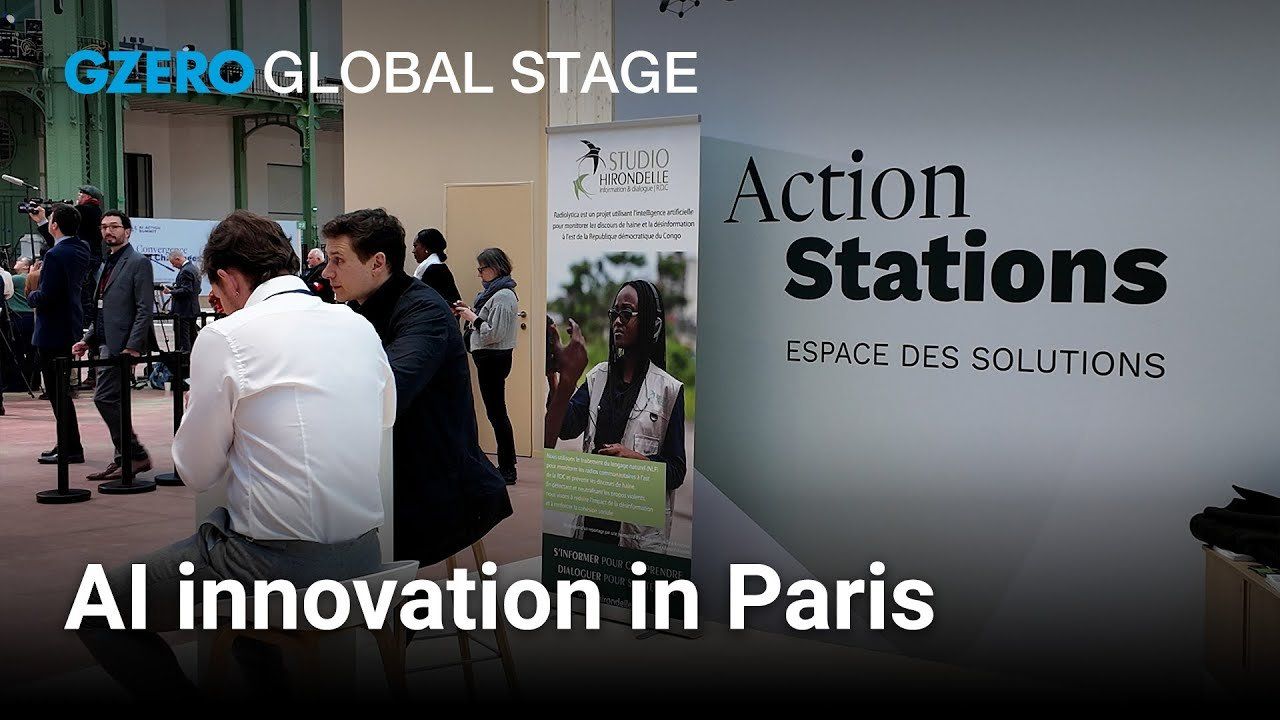February 12, 2025
Inside the Grand Palais at the 2025 AI Action Summit, global leaders and innovators gathered to showcase how artificial intelligence is tackling some of the world’s most urgent challenges. The Paris Peace Forum selected 50 groundbreaking AI projects from over 770 applicants across 111 countries for their potential to drive positive change.
Among the featured projects was Disha, an AI-driven disaster response initiative from the UN Global Pulse Lab. "Our model compares satellite images before and after disasters like floods or earthquakes to identify damage and direct aid efficiently," explained Talea von Lupin.
Another initiative, Phoenix, is using AI for peacebuilding by analyzing social media discourse to detect and address polarization. "We help mediators monitor online narratives in an ethical and participatory way," said Rita Costa Cots, emphasizing the tool's role in conflict resolution.
In healthcare, Care for Rare is leveraging AI to detect rare genetic diseases in newborns, helping doctors diagnose conditions early and save lives. "We involve medical professionals in the design process, so the technology is easy to use from day one," said Jerry John Kponyo.
Meanwhile, Masakhane, an African-led initiative, is working to build AI-powered language tools for indigenous languages. "Many African farmers rely only on their native languages. AI can bridge this gap, empowering them with information and improving livelihoods," explained Tajuddeen Gwadabe.
With selected projects spanning 28 countries—including 22 from the Global South—the summit underscored the power of AI to drive sustainable and equitable progress. From environmental protection to healthcare breakthroughs, the innovations showcased in Paris demonstrate how AI can be a force for good, inclusion, and global development.
This segment, reported by GZERO's own Tony Maciulis, is part of the Global Stage series at the 2025 AI Action Summit in Paris, presented by GZERO in partnership with Microsoft.
From Your Site Articles
- Will Donald Trump let AI companies run wild? ›
- Ian Bremmer and Amina Mohammed on the promise and peril of AI ›
- Will AI companies ever be profitable? ›
- Ian Bremmer: Can the US still lead AI innovation while cutting global ties? ›
- Using AI to diagnose patients with a smartphone but no healthcare access - GZERO Media ›
More For You
Costa Rica presidential candidate Laura Fernandez of the Sovereign People's Party (PPSO) addresses supporters during her closing campaign rally, ahead of the February 1 general election, in Heredia, Costa Rica, January 29, 2026.
REUTERS/Mayela Lopez
In yet another Latin American election shaped by concerns about security and violence, Costa Ricans will vote for president this Sunday.
Most Popular
Think you know what's going on around the world? Here's your chance to prove it.
Mexican President Claudia Sheinbaum Pardo stands alongside Canadian Prime Minister Mark Carney and US President Donald Trump during the 2026 World Cup draw at the John F. Kennedy Center for the Performing Arts in Washington, D.C., on December 5, 2025.
Deccio Serrano/NurPhoto
Canadian Prime Minister Mark Carney has repeatedly tussled with US President Donald Trump, whereas Mexican President Claudia Sheinbaum has tried to placate him. The discrepancy raises questions about the best way to approach the US leader.
© 2025 GZERO Media. All Rights Reserved | A Eurasia Group media company.
